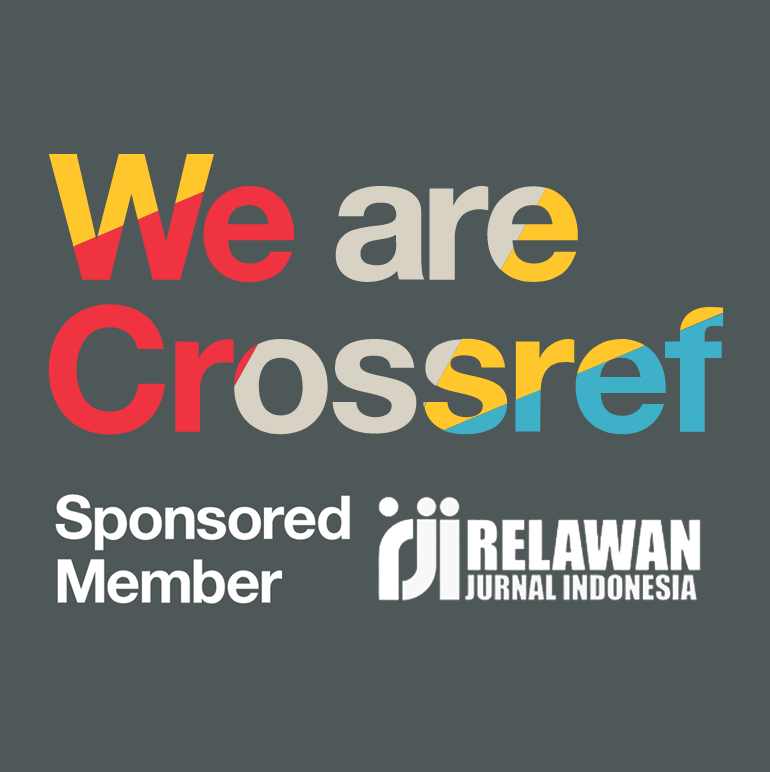Kompetensi Digital Guru Bimbingan dan Konseling di Abad 21
Abstract
As a 21st century teacher, supervising teachers are required to have digital competence. Digital competence is the ability of a teacher to use information and communication technology based on pedagogical principles so that it has implications for methods in educating. This study wants to see the digital competencies possessed by supervising teachers. This study uses a quantitative descriptive method with a research sample consisting of 30 supervising teachers under the auspices of the Ministry of Religion of Rejang Lebong Regency. The data collection technique used a closed questionnaire which tabulated the responses to each item. The results of the tabulation are made into the average of the answers in each aspect. The results showed that the digital competence of teachers was in the medium category, where 40% of the responses were in the medium category. For this reason, supervising teachers need to be even more active to improve digital competence in the 21st century.
Downloads
References
Aini, H., & Mudjiran, M. (2020). Cybercounseling as one of the skills in the guidance and counseling service in the 21st century. Southeast Asian Journal of Technology and Science, 1(1), 17-20. http://dx.doi.org/10.29210/81058000
Blyznyuk, T. (2018). Formation of Teachers Digital Competence: Domestic Challenges and Foreign Experience. Journal of Vasyl Stefanyk Precarpathian National University, 5(1), 42. Google Scholar
Fathurrochman, I. (2017). Implementasi Manajemen Kurikulum Dalam Upaya Meningkatkan Mutu Santri Pondok Pesantren Hidayatullah Curup. Tadbir : Jurnal Studi Manajemen Pendidikan, 1(1), 85–104. https://doi.org/10.29240/jsmp.v1i1.216
Fathurrochman, I., Ariskawanti, E., & Santosa, S. (2022). Analysis of public relations management of iain curup bengkulu in improving digital information system. At-Tarbiyat: Jurnal Pendidikan Islam, 05(02), 228–240. https://doi.org/10.37758/jat.v5i2.448
Fitriyani, P. (2018). Pendidikan karakter bagi generasi Z. Prosiding Konferensi Nasional Ke-7 Asosiasi Program Pascasarjana Perguruan Tinggi Muhammadiyah Aisyiyah (APPPTMA). Jakarta, 23-25. Google Scholar
Hoesny, M. U., & Darmayanti, R. (2021). Permasalahan dan Solusi Untuk Meningkatkan Kompetensi dan Kualitas Guru: Sebuah Kajian Pustaka. Scholaria: Jurnal Pendidikan dan Kebudayaan, 11(2), 123-132. Google Scholar
Indonesia, P. R. (2005). Peraturan Pemerintah Republik Indonesia Nomor 19 tahun 2005 tentang Standar Nasional Pendidikan. 1–54. Google Scholar
Notanubun, Z. (2019). Pengembangan Kompetensi Profesionalisme Guru di Era Digital (Abad 21). Jurnal Bimbingan Dan Konseling Terapan, 3(2), 54. https://doi.org/10.30598/jbkt.v3i2.1058
Novita Sonia, T. (2019). Menjadi Guru Abad 21: Jawaban Tantangan Pembelajaran Revolusi Industri 4.0. Universitas Negeri Medan. 191–199. Google Scholar
Nursalim, M. (2020). Peluang Dan Tantangan Profesi Bimbingan Dan Konseling di Era Revolusi Industri 4.0. PD ABKIN JATIM Open Journal System, 1(1), 31-40. https://doi.org/10.1234/pdabkin.v1i1.14
Rahmadi, I. F. (2019). Technological Pedagogical Content Knowledge (TPACK): Kerangka Pengetahuan Guru Abad 21. Jurnal Pendidikan Kewarganegaraan, 6(1). Google Scholar
Ristianti, D. H. (2017). Pengaruh Pemahaman Mahasiswa Terhadap Program Studi Dengan Ketahanan Belajar Mahasiswa (Studi Terhadap Mahasiswa Tahun Akademik 2014/2015 Jurusan Tarbiyah STAIN Curup). Proceeding IAIN Batusangkar, 1(1), 199-212. Google Scholar
Ristianti, D. H., Azwar, B., Fathurrochman, I., & Nurjannah, N. (2022). Collaboration of Academic Advisor with Counseling Laboratories and its effect on the Students’ Learning Readiness. AL-ISHLAH: Jurnal Pendidikan, 14(1), 833–840. https://doi.org/10.35445/alishlah.v14i1.1193
Sabir, Z., Raja, M. A. Z., Mumtaz, N., Fathurrochman, I., Sadat, R., & Ali, M. R. (2022). An Investigation Through Stochastic Procedures for Solving the Fractional Order Computer Virus Propagation Mathematical Model with Kill Signals. Neural Processing Letters, 1-15. https://doi.org/10.1007/s11063-022-10963-x
Sholihah, I. N. M., Handayani, T., & Baskoro, B. T. (2019). Profesionalisme konselor sekolah dalam pelayanan generasi milenial. Jurnal Bikotetik (Bimbingan dan Konseling: Teori dan Praktik), 3(1), 1-5. https://doi.org/10.26740/bikotetik.v3n1.p1-5
Sumardianta, J., & Aw, W. K. (2018). Mendidik Generasi Z Dan A. Gramedia Widiasarana Indonesia. Google Scholar
Sumarwiyah, S., & Zamroni, E. (2017). Pemanfaatan Tekonologi Informasi (TI) Dalam Layanan Bimbingan Dan Konseling Sebagai Representasi Berkembangnya Budaya Profesional Konselor Dalam Melayani Siswa. Jurnal Bimbingan Dan Konseling Ar-Rahman, 2(1). Google Scholar
Suryahadikusumah, A. R., & Kurniasari, K. (2019). Karakteristik guru BK millenial di sekolah menengah atas Kota Palembang. TERAPUTIK: Jurnal Bimbingan dan Konseling, 3(2), 52-57. https://doi.org/10.26539/teraputik.32125
Susiyanti, M., Fathurrochman, I., & Iswanto, R. (2022). Strategy for the Development of Educators in Improving the Quality of Education at Madrasah Tsanawiyah Baitul Makmur Curup. International Journal of Educational Review, 4(1), 154-168. Google Scholar
Copyright (c) 2022 Dina Hajja Ristianti

This work is licensed under a Creative Commons Attribution 4.0 International License.
Authors who publish with this journal agree to the following terms:
1) Authors retain copyright and grant the journal the right to first publication, with the work simultaneously licensed under the Creative Commons Attribution that allows the sharing of articles published with the acknowledgement of authorship and the initial publication in this magazine.
2) The authors are authorized to make additional contracts separately for distribution of the version of the work published in this journal (for example, publication in an institutional repository or as a chapter of the book), as long as there is recognition of authorship and initial publication in this journal.
3) Authors are authorized and encouraged to publish and distribute their work online (for example, in institutional repositories or on their personal pages) at any time before or during the editorial process, as it increases the impact and reference of the published work.






